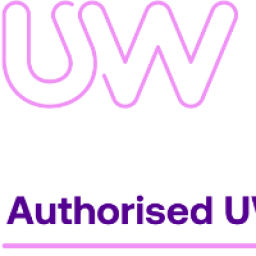Planning strategies to consider before 6 April 2024
Have you recently evaluated your personal tax situation? Is your tax structure optimised for efficiency? As we approach the end of the tax year on 5 April 2024, it presents an ideal opportunity to assess and utilise the various allowances and reliefs available to enhance your tax profile. Allocating time for this review can provide valuable insight into potential opportunities for you and your family.
The vast scope and complexity of the UK tax system may seem daunting. However, navigating it with careful planning can lead to significant financial benefits. Understanding your tax affairs is key to maximising your wealth and ensuring your financial future. Future legislation could result in changes to tax law, which may require adjustments to your plans.
Take advantage of potential reliefs or allowances
However, the tax landscape has witnessed considerable changes, making the situation more challenging for taxpayers and investors alike. As we near the end of the 2023/24 tax year, every taxpayer should understand the importance of this date and consider their tax position.
Furthermore, 5 April 2024 marks the end of your personal earnings year. Knowing your yearly income will help you identify your tax band and ensure you take advantage of potential reliefs or allowances. The current tax year officially ends on 5 April 2024. The following day, 6 April 2024, ushers in the 2024/25 tax year.
As the tax year-end approaches, we’ve provided some planning tips to consider:
Marriage Allowance
This allowance provides a unique opportunity for couples where one partner is a basic rate taxpayer, and the other partner’s income falls below the personal allowance threshold. With the Marriage Allowance, you can transfer up to £1,260, which equates to 10% of the personal allowance from the lower-income partner to the higher-income partner. Those with some income but who are non-taxpayers due to other allowances/bands (such as PSA or starting rate band) can also benefit, but they must be non-taxpayers.
This transfer can significantly reduce the tax liability for the basic rate taxpayer, potentially saving up to £252 in the current tax year. It’s important to note that this allowance is specifically designed for married couples or registered civil partners. By efficiently utilising this allowance, couples can optimise their combined tax liabilities and make the most of their financial situation. You can backdate up to four years if you were eligible in those years; the earliest of the four years (for example, at the time of writing 2019/20) must be applied for before the tax year-end.
Employee Tax Reliefs
In the course of your employment, there are several tax reliefs you may be eligible to claim. These provisions are designed to offer financial respite for certain expenses related to your job. One such relief is for professional subscriptions. If you must maintain membership in a professional body as part of your job, you can claim tax relief on these fees.
Another provision is the ‘working from home’ allowance. This relief is aimed at employees who incur additional costs due to working from home. It’s designed to alleviate some financial pressure from maintaining a home office. You may also be entitled to claim relief for business miles travelled in your personal vehicle. If you use your own car for work-related travel, this relief can offer significant savings.
Trading and Property Allowances
These allowances are aimed at individuals who earn small amounts of income from activities like selling items on eBay or Amazon or renting out spaces on Airbnb. Each of these allowances offers up to £1,000 of tax-free income.
Furthermore, if you rent out a portion of your home, you may be eligible for the Rent-a-Room relief. This relief allows you to receive up to £7,500 tax-free from letting out a room in your home.
Individual Savings Account (ISA) Allowance
You receive an ISA allowance of £20,000 in the current tax year. Contributions can be allocated to a Cash ISA, Stocks & Shares ISA, Lifetime ISA or Innovative Finance ISA. ISAs are a ‘tax-efficient wrapper’ which can make a big difference to your money over time. You can both use your ISA allowances for married couples, enabling you to put up to £40,000 in ISAs between you.
Investors who have yet to use up their full ISA allowance should discuss with us the potential to sell shares yielding dividends outside their ISA and buying them back within this tax-exempt wrapper. However, care should be taken as this could trigger a Capital Gains Tax charge and potentially additional fees.
Junior ISA (JISA) Allowance
In the same vein as the ISA suggestions, children are entitled to a Junior ISA (JISA) allowance of £9,000 per annum. Consider funding a JISA to give your children a nest egg when they turn 18. A child with a Child Trust Fund (CTF) must transfer the CTF funds to a JISA and close the CTF to be able to fund a JISA.
The Lifetime ISA
A Lifetime ISA (LISA) applies to individuals aged 18 to 40 who are either planning to purchase their first home or preparing for retirement. With the ability to invest up to £4,000 annually, the government bolsters your efforts with a 25% bonus, up to a maximum of £1,000 per year. This money can be used to buy a first property (subject to certain restrictions) or accessed when you turn 60 to supplement your retirement income. Access at any other time causes a 25% charge to be deducted.
Pension Contributions
Pension contributions should be a key consideration in the run up to the end of each tax year. Contributions to pension schemes can be made on behalf of your minor and adult children and your grandchildren. There are several advantages to doing so. For example, the pension scheme can reclaim basic rate tax from HM Revenue & Customs (HMRC). The child/grandchild will receive additional tax relief if they’re subject to a higher tax rate than 20%. You’re establishing a pension fund for your children’s/grandchildren’s retirement or to pass on to future generations.
In the current tax year of 2023/24, contribution limits have been augmented. The annual tax-efficient pension contribution limit is now the lesser of your relevant earnings or an annual allowance of £60,000 gross (less employer contributions and plus any carry forward), corresponding to a net payment of £48,000 to achieve £60,000 in your plan.
All UK residents under the age of 75 can contribute up to £3,600 gross (£2,880 net) per year, irrespective of income level. However, suppose your adjusted income (typically your total taxable income plus employer pension contributions) exceeds £260,000. In that case, the annual allowance is progressively reduced by £1 for every £2 of income over this threshold, down to a minimum of £10,000 gross (£8,000 net) for those with an adjusted income above £360,000.
For individuals aged over 75, no tax relief is provided on personal contributions made, although employer contributions can still be made as normal. If you can make additional contributions, you can use any unused allowances carried forward from the previous three years if eligible. Reviewing your pension status and that of your family members is crucial for effective financial planning.
‘Carry Forward’ Rules
The ‘Carry Forward’ rules allow you to carry forward unused pension annual allowances from the previous three tax years as long as you had a pension plan in place in those years and sufficient relevant earnings. As we reach this tax year end, you’ll lose any unused allowance for the 2020/21 tax year if it remains untapped. Considering these rules when planning your pension contributions would be best.
Capital Gains Tax Allowance
In light of the changing landscape for Capital Gains Tax (CGT), it’s essential to understand how you can optimise your financial strategy. Before 6 April 2024, you have an opportunity to solidify your capital gains and make the most of the annual CGT exemption, which is capped at £6,000, and will reduce further to £3,000 for tax year 2024/25. However, please note that this benefit is not extended to individuals who are taxed on a remittance basis with income and capital gains exceeding £2,000.
One effective method to crystallise capital gains involves strategically selling and repurchasing stocks and shares. This approach enables you to maximise the annual CGT exemption. It offers an opportunity to elevate the base cost for future sales, potentially reducing your tax liability in the long run.
However, knowing the timing and the party involved in the repurchase is crucial. To derive the maximum benefit from this strategy, the repurchase should ideally occur after a gap of more than 30 days. Alternatively, the buyback can be executed by your spouse, registered civil partner or through an Individual Savings Account (ISA) or pension.
Dividend Allowance
For those with invested assets, the dividend allowance can offer substantial benefits. You can receive up to £1,000 per year tax-free, with dividend tax rates applied to amounts over £1,000. The dividend allowance will be reduced to £500 per annum in the 2024/25 tax year.
Gifting for Estate Planning
Certain gifts can be exempt from Inheritance Tax, immediately leaving your estate upon gifting. These are commonly referred to as exempt gifts and include gifts presented to your spouse or registered civil partner. In addition, contributions to charities or political parties are exempt as well as gifts valued up to £250, provided each gift is given to a different recipient and is the only tax-exempt gift they’ve received from you within that tax year. This often encompasses birthday and Christmas gifts derived from your regular income.
Also exempt are wedding gifts from a parent to their child up to £5,000, from grandparent to grandchild up to £2,500, or up to £1,000 to anyone else. Additionally, you’re allocated an annual exemption each tax year, allowing you to gift cash or property up to the value of £3,000. This can be given to a single individual or divided among several recipients. If the previous year’s exemption wasn’t utilised, it can be carried forward to the current tax year, effectively doubling the exemption to £6,000.
Understanding these exemptions can help in efficient tax planning and potentially reduce your Inheritance Tax liability.
Other Available Allowances
Your Personal Savings Allowance (PSA) refers to the amount of savings interest income/growth you can earn tax-free. Current levels are set at £1,000 for basic rate taxpayers and £500 for higher rate taxpayers. Additional rate taxpayers, however, are not entitled to this allowance.
ARE YOU AND YOUR FAMILY TAKING ADVANTAGE OF TAX PLANNING OPPORTUNITIES?
This is a general overview. Obtaining professional advice is essential to understand the best course of action for your specific circumstances. For further information on tax year-end planning opportunities, please get in touch with us today on 01254 688100.
 Symclean Industrial
Symclean Industrial








